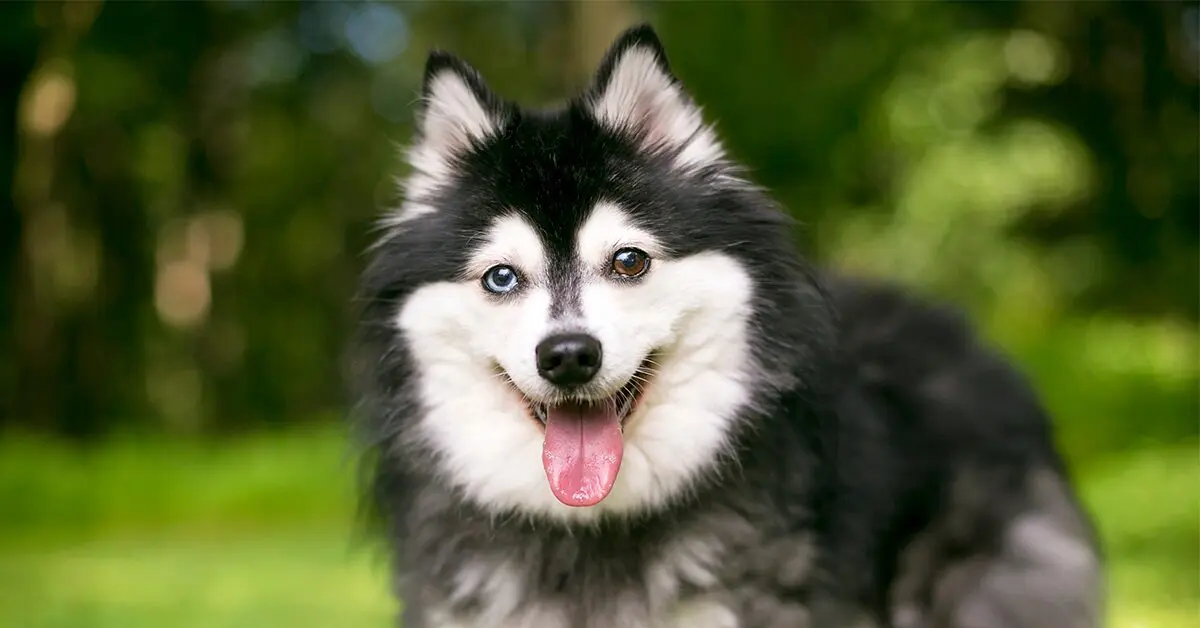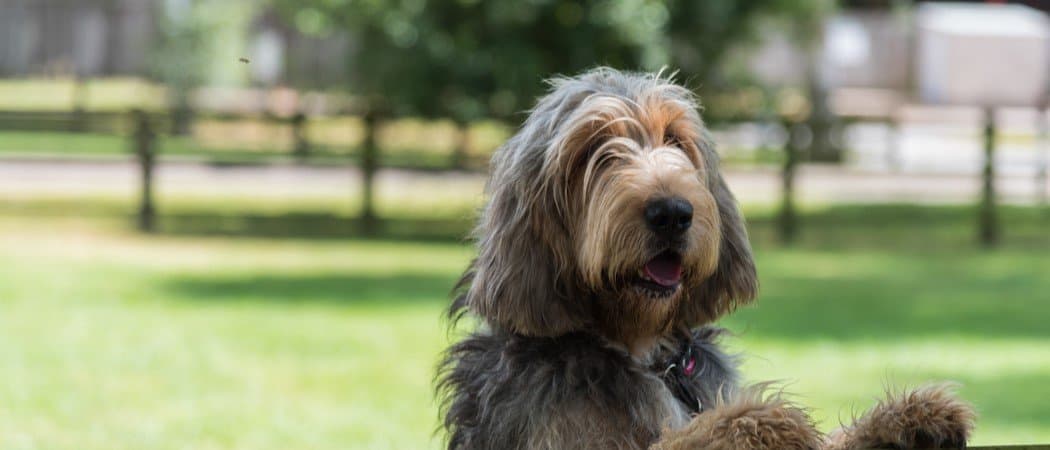
I. Introduction
The bulldog, also known as the English bulldog, is a breed of dog that originated in England. Bulldogs were first bred in the 16th century for the sport of bull-baiting, which involved dogs attacking and pinning down bulls. The breed was also used for other purposes, such as guarding property and hunting.
In the early 19th century, bull-baiting was banned in England, and bulldogs were no longer bred for this purpose. The breed almost became extinct, but a group of breeders worked to preserve the bulldog’s unique characteristics, such as its short, stocky build and wrinkled face.
Today, bulldogs are popular pets around the world, known for their affectionate and loyal personalities. However, they can also suffer from health problems due to their breeding history, such as breathing difficulties and joint issues. Breeders today are working to produce healthier bulldogs while still maintaining their distinctive look and temperament.
II. Temperament
Personality traits of the breed
Bulldogs are a well-loved breed known for their distinctive appearance and affectionate nature. They make great family pets due to their loyalty and love for spending time with their human family and with their owner. These dogs have a relaxed personality and are content with lounging around, making bull dog ideal for apartment and indoor living
Relationship with their owner
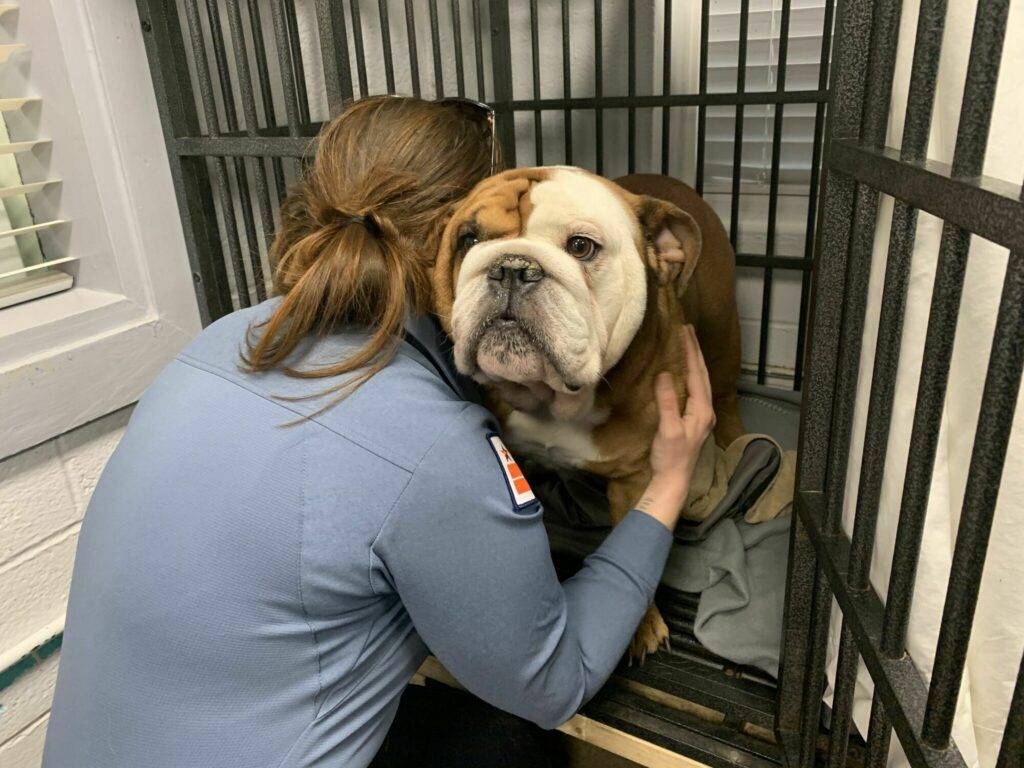
Bulldogs are known for their strong attachment and loyalty to their owners. These dogs are very affectionate and thrive on human companionship, often forming deep bonds with their owners. They enjoy nothing more than being near their human family members, whether it’s snuggling on the couch or following their owners around the house.
Bulldogs are also highly protective of their owners and their homes, making them excellent guard dogs. They have a strong instinct to defend their family and property, and will do so without hesitation. This loyalty and protective nature is what makes them a popular choice for families.
In addition, bulldogs are excellent with children and are known for their gentle and patient demeanor. They love to play and interact with kids, making them a great choice for families with young children.
Overall, the relationship between a bulldog and its owner is one of love, loyalty, and affection. These dogs crave human companionship and form strong bonds with their owners, making them wonderful family pets. Whether you’re looking for a protective companion or a cuddly lap dog, a bulldog may be the perfect choice for you.
Potential behavioral issues
Although bulldogs are typically known for their affectionate personalities, it’s important for owners to recognize that they can exhibit certain behavioral issues. One common problem is stubbornness, which may pose a challenge during training. When left alone for prolonged periods, bulldogs can become anxious or stressed, resulting in destructive behavior like chewing or digging. Aggression towards other dogs or animals is another potential issue that may worsen if the bulldog has not been properly socialized. Therefore, it’s crucial for owners to address any behavioral issues early on and consider working with a professional trainer to promote a harmonious and healthy relationship with their bulldog.
Understanding Aggression in Bull Dog

Bulldogs may display aggressive behavior, such as growling, snapping, or biting, in certain situations. Common triggers include fear, anxiety, pain, and lack of socialization. Early training and socialization are key to preventing aggression, as well as using positive reinforcement and setting clear boundaries. If a bulldog exhibits signs of aggression, it’s important to seek professional help from a certified dog trainer or behaviorist. With proper care and attention, bulldogs can remain wonderful family pets.
Signs of aggressive behavior
Bulldogs often display aggression through body language. It’s important to be aware of the following signs, as they may indicate that your bulldog has become aggressive for a justifiable or unjustifiable reason:
- Barking
- Growling
- Hard stare
- Lunging
- Biting
- Snapping
- Flattening the ears tight to the head
- Freezing
- Avoid eye contact
- Licking the lips
- Yawning
- Tucking the tail under the body
Causes of aggression in Bull Dog
Identifying the cause of any problem is crucial, including when it comes to bulldog behavior. Sudden aggression can occur for various reasons, and it’s essential to identify them promptly.
Several potential causes may trigger aggression in bulldogs.
- Fear
- An Illness
- Frustration
- When Domineering
Health and Lifespan
Reported lifespan range
Bulldogs are generally considered to be a healthy breed with a life expectancy of around 10-11 years. However, it’s important to note that bulldogs are prone to certain health issues, such as breathing problems, hip dysplasia, and skin allergies. Proper care, including regular check-ups with a veterinarian and a balanced diet, can help ensure a long and healthy life for your furry friend.
Health issues that can affect lifespan

Bulldogs are beloved pets for their adorable appearance and affectionate personality, but unfortunately, they are prone to certain health issues that can impact their lifespan. One of the most common health issues in bulldogs is breathing difficulties, due to their flat faces and short snouts, known as brachycephalic syndrome. This can lead to respiratory distress and overheating, particularly in hot and humid weather. Other health issues that can affect bulldogs include hip and elbow dysplasia, skin allergies, eye problems such as cherry eye and corneal ulcers, and spinal issues like intervertebral disc disease. These conditions can cause discomfort and pain, and may require medical intervention or surgery to manage. It is important for bulldog owners to monitor their pets closely for any signs of health problems and to provide proper care and attention to help ensure a long and healthy life. Regular veterinary check-ups and preventive care can also help to catch any potential health issues early on, and ensure prompt treatment and management.
Tips for maintaining a healthy BullDog
If you’re a proud owner of a Bulldog, you want to ensure your furry friend stays healthy and happy for years to come. Here are some tips to help maintain your Bulldog’s health:
- Regular Exercise: Bulldogs have a tendency to gain weight quickly, which can lead to various health issues. Ensure your Bulldog gets regular exercise, such as daily walks or playtime in the yard. However, make sure not to over-exercise your Bulldog, as their short snouts can make breathing difficult.
- Proper Nutrition: Feeding your Bulldog a healthy, balanced diet is crucial for their health. Avoid feeding your Bulldog table scraps and opt for high-quality dog food that is specifically designed for their breed.
- Regular Vet Visits: Regular visits to the veterinarian can help catch any potential health issues early on. Ensure your Bulldog receives all necessary vaccinations and undergoes regular checkups to maintain their health.
- Grooming: Bulldogs require regular grooming to maintain their coat and skin health. Brush their fur regularly and clean their wrinkles and folds to prevent infections.
- Dental Care: Bulldogs are prone to dental issues, so ensure you brush their teeth regularly and provide dental chews or toys to help maintain their oral health.
- Mental Stimulation: Bulldogs are social animals and require mental stimulation to stay happy and healthy. Engage in interactive playtime and provide toys to keep them entertained.
By following these tips, you can help maintain your Bulldog’s health and ensure they live a long and happy life.
Food for Bull Dogs

While it is not harmful for a bulldog to drink milk in moderation, it is not necessary or recommended for their diet. Most bulldogs are lactose intolerant, which means they may experience digestive issues such as diarrhea, gas, and bloating if they consume too much milk or dairy products. Additionally, milk is not nutritionally complete and does not provide all of the essential vitamins and nutrients that a bulldog needs to maintain good health. Therefore, it is best to stick to a balanced and nutritionally complete diet specifically formulated for bulldogs and consult with a veterinarian for any dietary concerns or questions.
Can Bull Dog eat bananas
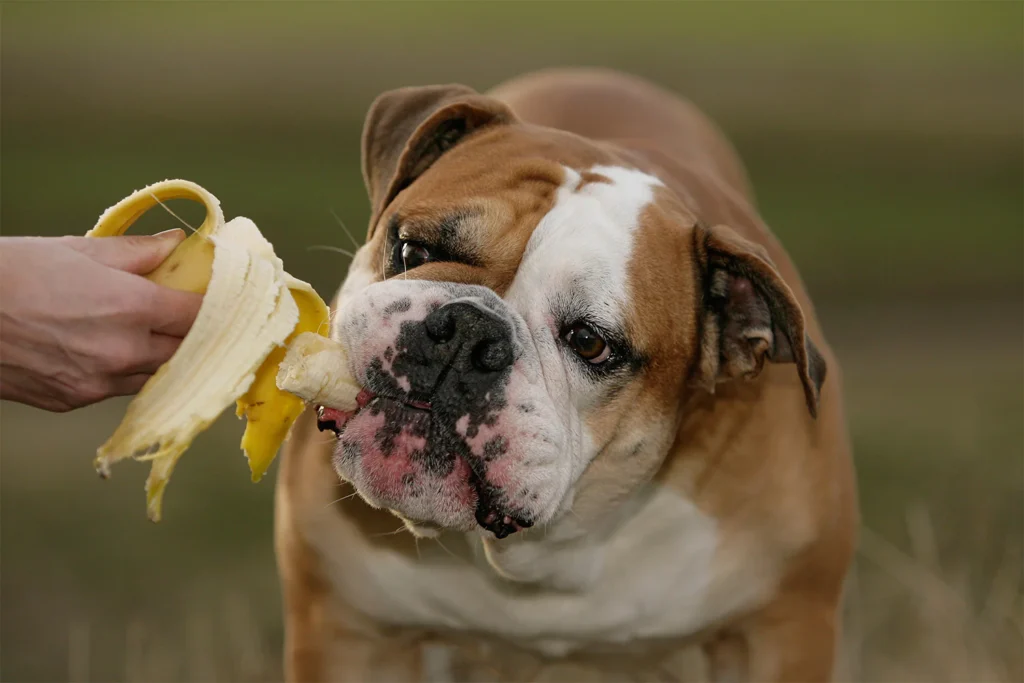
Bulldogs can eat bananas in moderation as they are rich in vitamins, fiber, potassium, and natural sugars that can provide a quick energy boost. However, it’s important to consult with a veterinarian before feeding your Bulldog bananas to ensure it suits their dietary needs. To prevent choking, remove the peel and chop the fruit into small, bite-sized pieces. Bananas should not replace a balanced diet that includes protein, carbohydrates, and healthy fats essential for Bulldogs’ overall health and wellbeing.
Can Bull Dog eat chicken
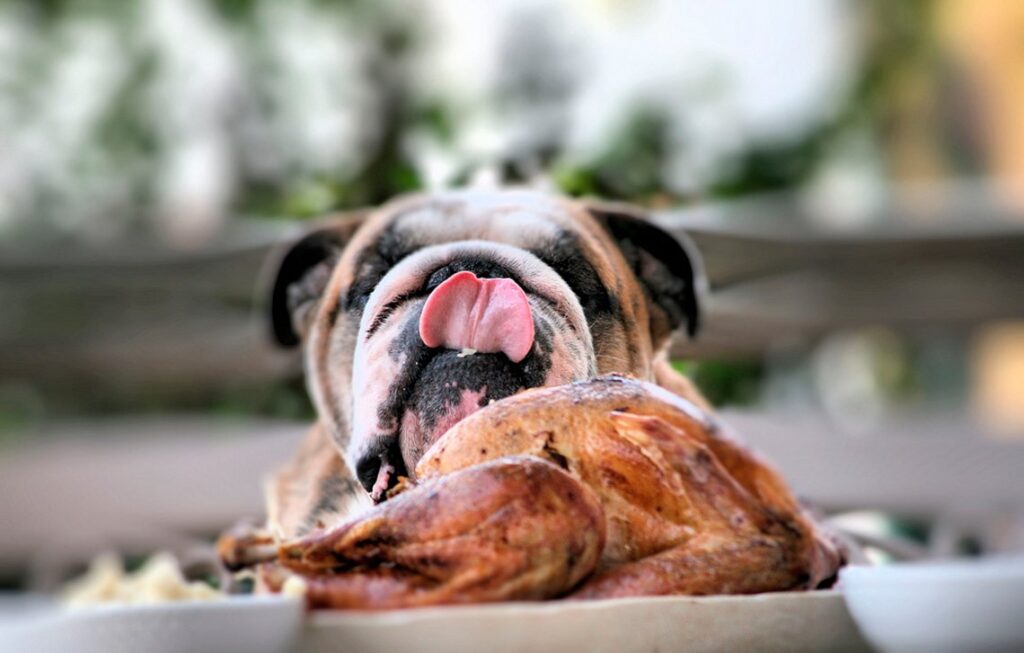
Bulldogs can eat chicken as it is a great source of protein, which is essential for their overall health and wellbeing. Chicken also contains important nutrients such as vitamins B6 and B12, niacin, and phosphorus that can benefit Bulldogs.
However, it is important to ensure that the chicken is cooked thoroughly and does not contain any bones as they can pose a choking hazard or cause gastrointestinal issues if swallowed. Additionally, it’s important to avoid giving Bulldogs chicken that is seasoned or contains any ingredients that may be harmful to them, such as garlic or onion.
It’s always a good idea to consult with your veterinarian before introducing chicken or any other new food into your Bulldog’s diet, especially if they have any pre-existing health conditions or dietary restrictions. Lastly, it’s important to remember that chicken should not be considered a substitute for a balanced and nutritious diet, and should only be given as a treat or supplement to their regular meals.
Can Bull Dog eat yogurt

Yes, Bulldogs can eat yogurt as it is a good source of protein, calcium, and probiotics. Yogurt can help promote healthy digestion and boost the immune system of Bulldogs.
However, it is important to ensure that the yogurt is plain and unsweetened, as flavored yogurt may contain added sugars that can be harmful to Bulldogs. Additionally, Bulldogs with lactose intolerance should not consume yogurt as it can cause digestive issues.
Before adding yogurt to your Bulldog’s diet, it is recommended to consult with a veterinarian to ensure that it is suitable for your dog’s individual dietary needs. When feeding yogurt to your Bulldog, start with small amounts and monitor their reaction to it.
Overall, yogurt can be a healthy and nutritious addition to a Bulldog’s diet, but it should not be considered a substitute for a balanced and complete diet.
Conclusion
Final thoughts on Bull Dog
Bulldogs are a unique and beloved breed that have captured the hearts of many dog lovers around the world. With their charming wrinkles, friendly personalities, and gentle temperament, it’s no wonder they have become such popular pets.
While Bulldogs do have some health issues and require a certain level of care and attention, they make wonderful companions for individuals and families alike. With proper training, socialization, and regular exercise, Bulldogs can thrive in a variety of environments.
Overall, Bulldogs are a great breed for those who are looking for a loyal and affectionate companion that will provide them with years of love and companionship.
